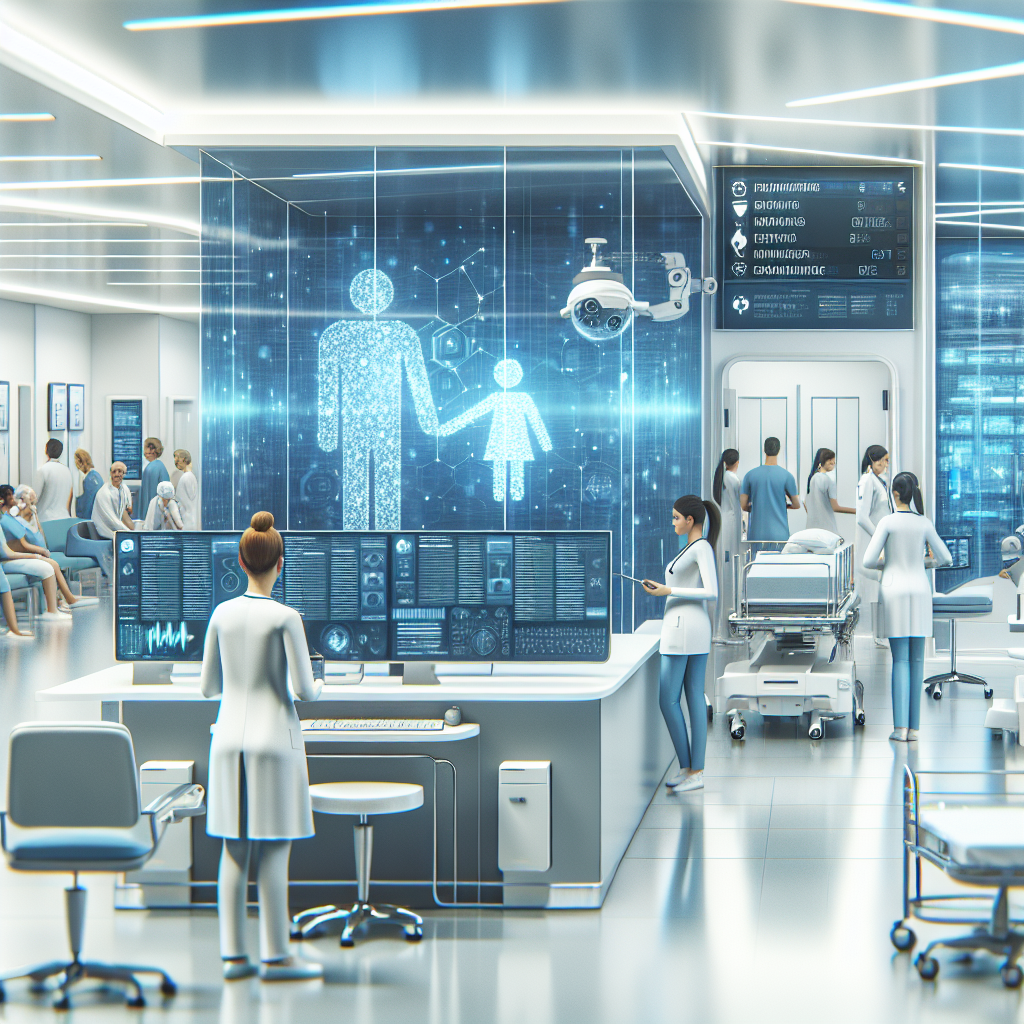Artificial Intelligence (AI) has been making waves in various industries, and healthcare facility management is no exception. With the increasing complexity and demands of managing healthcare facilities, AI has emerged as a powerful tool to streamline processes, improve efficiency, and enhance patient care. In this article, we will explore the impact of AI on healthcare facility management and discuss its benefits, challenges, and future potential.
Benefits of AI in Healthcare Facility Management
1. Improved Efficiency: AI can automate routine tasks such as scheduling, inventory management, and maintenance, which can save time and reduce human error. This allows healthcare facility managers to focus on more strategic aspects of their work and improve overall efficiency.
2. Cost Savings: By optimizing processes and resources, AI can help healthcare facilities save on operational costs. For example, AI-powered predictive maintenance can help prevent costly equipment failures and reduce downtime.
3. Enhanced Patient Care: AI can help healthcare facilities provide better care to patients by improving the accuracy and speed of clinical decision-making. For example, AI algorithms can analyze medical imaging scans to detect abnormalities more quickly and accurately than human radiologists.
4. Data-driven Insights: AI can analyze large volumes of data to provide insights that can help healthcare facility managers make more informed decisions. For example, AI can analyze patient flow data to optimize staffing levels and reduce wait times.
Challenges of AI in Healthcare Facility Management
1. Data Privacy and Security: Healthcare facilities handle sensitive patient data, and there are strict regulations governing its protection. AI systems must comply with these regulations to ensure patient privacy and data security.
2. Integration with Existing Systems: Implementing AI in healthcare facility management may require integration with existing systems, which can be complex and time-consuming. Healthcare facilities must ensure that AI systems can seamlessly work with their current infrastructure.
3. Training and Skills: Healthcare facility managers and staff may need training to effectively use AI tools and technologies. This can be a challenge for facilities with limited resources or staff with limited technical skills.
4. Ethical Considerations: AI algorithms may be biased or make decisions that are not in the best interest of patients. Healthcare facilities must address these ethical considerations to ensure that AI is used responsibly and ethically.
Future Potential of AI in Healthcare Facility Management
The future of AI in healthcare facility management looks promising, with continued advancements in technology and increased adoption of AI solutions. Some potential applications of AI in healthcare facility management include:
1. Predictive Analytics: AI can use historical data to predict future trends and events, such as patient admissions, equipment failures, or supply chain disruptions. This can help healthcare facilities anticipate and address challenges before they occur.
2. Virtual Assistants: AI-powered virtual assistants can help healthcare facility managers automate tasks, answer queries, and provide real-time insights. Virtual assistants can improve communication and collaboration among staff members and enhance overall efficiency.
3. Remote Monitoring: AI can enable remote monitoring of healthcare facilities, allowing managers to track performance metrics, identify issues, and make data-driven decisions from anywhere. This can be especially useful for facilities with multiple locations or limited on-site staff.
4. Personalized Care: AI can help healthcare facilities provide personalized care to patients by analyzing individual data and preferences. This can improve patient outcomes and satisfaction and strengthen the relationship between patients and healthcare providers.
FAQs
Q: How can AI improve patient safety in healthcare facilities?
A: AI can help healthcare facilities identify and prevent potential safety hazards, such as medication errors, patient falls, or hospital-acquired infections. AI-powered systems can analyze data in real-time to detect anomalies and alert staff to take timely action.
Q: Is AI a replacement for human workers in healthcare facility management?
A: No, AI is not intended to replace human workers in healthcare facility management. Instead, AI can complement human skills and expertise by automating routine tasks, providing data-driven insights, and enhancing decision-making. Human oversight and intervention are still essential to ensure that AI systems operate effectively and ethically.
Q: How can healthcare facilities ensure the ethical use of AI?
A: Healthcare facilities can ensure the ethical use of AI by implementing policies and guidelines for the development, deployment, and monitoring of AI systems. This includes addressing bias in algorithms, ensuring transparency in decision-making processes, and protecting patient privacy and data security.
Q: What are some practical steps for healthcare facilities to adopt AI in facility management?
A: Healthcare facilities can start by identifying their specific needs and goals for AI adoption in facility management. They can then explore AI solutions that align with these needs, pilot test them in a controlled environment, and gradually scale up implementation. Collaboration with AI vendors, IT experts, and other stakeholders can also help facilitate the adoption process.
In conclusion, AI has the potential to transform healthcare facility management by improving efficiency, reducing costs, enhancing patient care, and providing data-driven insights. While there are challenges to overcome, the benefits of AI in healthcare facility management are clear, and its future potential is promising. By addressing ethical considerations, ensuring data privacy and security, and investing in training and skills development, healthcare facilities can harness the power of AI to optimize their operations and deliver better outcomes for patients.

